-
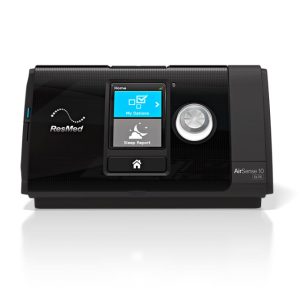
Automatic CPAP Machines
Shop NowShop -
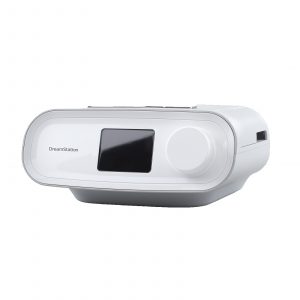
Fixed Pressure CPAP Machines
Shop NowShop -
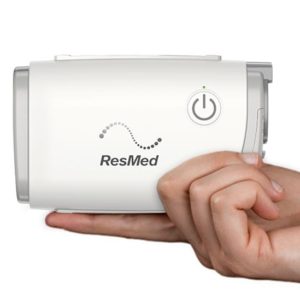
Travel CPAP Machines
Shop NowShop -

ResMed CPAP Machines
Shop NowShop -
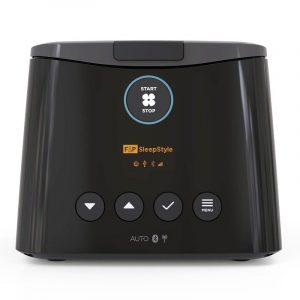
Fisher & Paykel CPAP Machines
Shop NowShop -

Löwenstein Medical CPAP Machines
Shop NowShop -
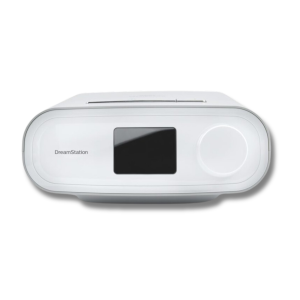
Philips CPAP Machines
Shop NowShop -
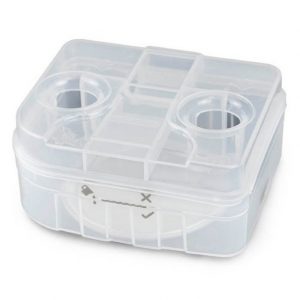
Spares and Parts
Shop NowShop
What is a CPAP Machine?
CPAP therapy (Continuous Positive Airway Pressure) is the gold-standard treatment for the sleep disorder Obstructive Sleep Apnoea (OSA).
A CPAP machine, or Sleep Apnoea Machine, works by blowing a steady flow of air through a mask worn while sleeping. The air pressure keeps the upper airways open to prevent apnoea events.
The pressure setting is either chosen by your sleep clinic, or the machine will auto-adjust to meet your requirements.
Can I buy a CPAP machine without a doctor?
You can buy a CPAP device in the UK without a doctor. However, you must provide valid proof to show that a doctor or sleep clinic has advised CPAP therapy.
If you have not yet had Sleep Apnoea confirmed, you can order a Sleep Apnoea Test. Once the test is complete, you will receive the results within 2 working days.
How do I choose a machine?
If you are about to start CPAP therapy for the first time, all you need is a machine and a mask. Prices vary by brand, and the devices and masks may offer slightly different features.
We are here to help, so if you have any questions, our customer service team are on hand to help.
Adapting to therapy
If you are new to CPAP therapy, it may take a little time to get used to it. Some patients feel the benefit after just one night. For others, it can take several weeks of regular use to feel the full benefit. Whenever you start, patience is essential.
The mask is the most important part of effective and comfortable therapy. We do not provide masks with the devices, so please get in touch with us if you need help choosing one.
There are other items available which can enhance your comfort, such as a heated humidifier. This ensures the air delivered by the CPAP machine is warm. Warmer air reduces a dry mouth or soreness in the throat.
When we deliver your CPAP, we will provide a small brochure with all the steps needed to set up the equipment. Plus, tips on getting comfortable with your CPAP and how to solve any common side effects.
CPAP Machines FAQs
The results of your Sleep Test will determine if you require a fixed-pressure machine or an automatic machine.
Fixed Pressure CPAP:
- Delivers a constant pressure.
- Good if your prescribed pressure stays stable.
- You can change the pressure setting when needed.
At the start of therapy, a fixed-pressure machine always provides your prescribed pressure. This setting will be changed if needed. For example, if you make lifestyle changes, this could affect the level of your OSA.
If your doctor or clinic has given you a pressure setting, you can choose between an auto or fixed-pressure machine. However, if you do not have a prescribed pressure, you will need an Auto-CPAP Machine.
Automatic CPAP:
- An automated machine will adjust the pressure throughout the night to meet your needs.
- It will monitor your breathing and adjust the pressure as needed to keep your airway open.
- If you choose an Auto-CPAP machine, it will always provide the exact pressure you need.
- An automatic machine will start at low pressure to make falling asleep easier.
The advice is to use your CPAP device for at least 4 hours per night. Four hours is the minimum amount of time for users to feel the full benefit of treatment. However, the aim would be to use the machine the whole time you are asleep.
Follow the manual and our advice to get the best result from the therapy. You may not get the full benefit of using the machine if you do not use it every night. People with Sleep Apnoea who stop using therapy usually see the key signs and symptoms return quickly.
Reading the data on the machine measures the success of CPAP therapy. The key metrics for measuring CPAP success include usage hours, time asleep, and your apnoea-hypopnoea index (AHI).
You can share your sleep data recorded by the machine with a doctor or sleep clinic. They can use the data to monitor how well it is working for you. Some machines allow users to view this data on an app or website. On others, it is available on the machine’s SD card.
The length of time people require CPAP treatment varies. It depends on the symptoms that led to its prescription and their overall health. Some people may need to use CPAP for life, while others may only need to use it for a limited time.
Speak to your healthcare provider when making decisions about your CPAP therapy. If you stop using CPAP therapy, the key signs and symptoms of Sleep Apnoea may return again.
The short answer is yes. A common concern when beginning CPAP therapy is the noise of the device. All CPAP machines make an element of noise as they are continuously blowing out air. However, modern machines have come a long way, and the noise is down to a very low level. All of the CPAP machines we provide are tested to ensure they are quieter than 30db.
The noise from your machine goes unnoticed when compared to the usual loudness of snoring.
The availability of CPAP on the NHS and the criteria for eligibility can vary. In some cases, patients may be provided with a machine free of charge. While in other situations, there may be some cost-sharing or specific conditions that need to be met.
To get the most up-to-date information regarding the provision of CPAP on the NHS, speak to your GP or your local NHS authority.
However, there might be a waiting list for a sleep test and receiving equipment. According to a BBC News story, the entire process can take up to two years.
BiPAP stands for Bilevel Positive Airway Pressure. BiPAP provides non-invasive ventilation to treat conditions such as Central Sleep Apnea, COPD, and other lung conditions.
BiPAP machines look the same as CPAP devices. The difference is they provide two distinct pressure settings: one for when you breathe in (IPAP) and another for when you breathe out (EPAP).
If you think you may need BiPAP, then you should discuss this with your GP or sleep clinic first.


